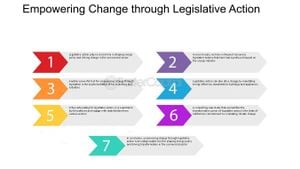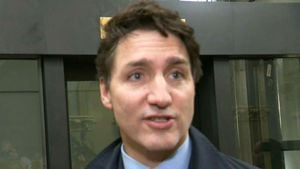After his recent announcement of appointing Kevin Hassett as the Director of the National Economic Council, President-elect Donald Trump is poised to take significant steps to reshape the U.S. economy. The selection of Hassett, who was one of the key architects behind Trump’s previous economic policies, particularly the tax cuts, marks what could be seen as either the resurrection or reiteration of financial strategies associated with the Trump administration's earlier years.
Hassett previously served as the chairman of the Council of Economic Advisers (CEA) during Trump’s first term, where he was touted for promoting the Tax Cuts and Jobs Act (TCJA). According to Trump, Hassett will play not only “an important role” but will also focus on helping American families recover from inflation, which he attributes to the Biden administration’s policies. This claim raises eyebrows considering the mixed economic signals displayed during and after Trump’s tenure.
Hassett’s prior work has not been without its controversies. Critics have pointed out his past comments, including referring to workers as "human capital stock," raising questions about his views on labor and market dynamics. David Kass, Executive Director of Americans for Tax Fairness, remarked on Hassett’s role, stating, “Make no mistake: Trump’s almost $2 trillion-dollar tax cut overwhelmingly benefited the ultra-wealthy and mega-corporations, all the meanwhile hurting everyday Americans.” This sentiment echoes the doubts surrounding the anticipated benefits of tax cuts on the general populace, particularly when balanced against reported increases in national debt and corporate profits.
The current economic environment, marked by rising inflation and fears of recession, causes palpable concern among economists and policymakers alike. Reports indicate troubling trends, with projections hinting at possible 'bankruptcy' if fiscal policies are not managed effectively. The U.S. economy has shown signs of slowing growth, and experts warn against applying band-aid fixes rather than addressing issues at their roots.
Critics such as Goldman Sachs have projected adverse effects stemming from proposed tariffs on imported goods, stating contractions within domestic industries could intensify inflation even more. Stressing fair trade, Trump's team has touted this as part of Hassett’s new plan, yet experts argue trade wars often lead to higher prices for consumers rather than bolstering domestic production as intended.
Hassett’s economic philosophy and proposals for the upcoming Trump administration have yet to be revealed fully. How he plans to tackle the challenges posed by current inflation rates and supply chain issues remains unclear. With the previous administration’s legacy on the line, expectations might set the stage for both political and economic conflict, especially among constituents financially strained by recent economic conditions.
Throughout the Trump administration's first term, the Tax Cuts and Jobs Act was widely celebrated among conservative lawmakers and business leaders. Supporters argue it spurred economic growth, citing low unemployment rates and increased corporate investments. Yet, data show wealth inequality persisted and even worsened during this period, fueling debates about who truly benefits from such economic policies.
Advocates for the middle and lower classes have been particularly vocal, underscoring the need for more comprehensive approaches to address wealth distribution. They worry Hassett’s return to the economic helm signals another round of policies favoring corporate interests over the American worker. Points made by Kass paint this apprehension vividly: “Hassett’s dehumanizing rhetoric toward workers and his long track record of misleading claims should make us question who truly controls our country’s economic policy and for whose benefit.”
With the national debt already exceeding alarming thresholds, the repercussions of extending tax cuts, coupled with proposed foreign tariffs, are fraught with uncertainties. Economic analysts are on high alert, wondering whether this will lead to more drastic measures—such as government cost-cutting or even more austerity—to bridge the gaps left by once-popular tax policies.
The political atmosphere surrounding these developments will undoubtedly weigh heavily on the Trump administration as they navigate these turbulent economic waters. Many voters are still reeling from the effects of economic sanctions, trade wars, and inflation hikes. If Hassett and Trump fail to present clear, effective solutions, their administration may face significant backlash come election time.
Hassett's reappointment reflects the former president's inclination to stay rooted to his original economic principles. Yet, as the nation grows increasingly complex and interconnected post-pandemic, the age-old strategies may not suffice against grounded realities of modern economic challenges. Indications show the coming years could see prominent debates over taxation, spending, and economic transparency dominate not just political discussions but also household discussions across the country.
Through this lens, it becomes evident the incoming administration’s policies will likely reflect the standard bearing of Trump’s prior tax policies, and the results may very well determine whether they resonate positively or negatively with the American public. The stakes have never been higher, with the fate of millions of households at play within the choices made at the highest levels of economic governance—where echoing promises of growth must contend with tangible results faced on the ground.
Opinions among voters will undoubtedly be divided. Supporters will likely champion any moves to invigorate the economy as progressive steps, calling for renewed job creation and corporate investment. On the flip side, those skeptics will view these maneuvers as regressive, with fears of exacerbated economic divides leading to discontent.
Hassett's approach, coupled with the broader objectives of the Trump administration, will need to demonstrate clear connections between proposed policies and practical outcomes. Without such alignment, voters’ trust may wane—setting the stage for political repercussions as 2024 approaches.



